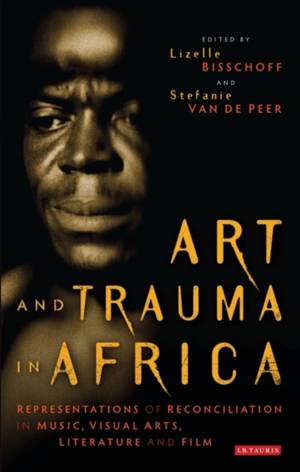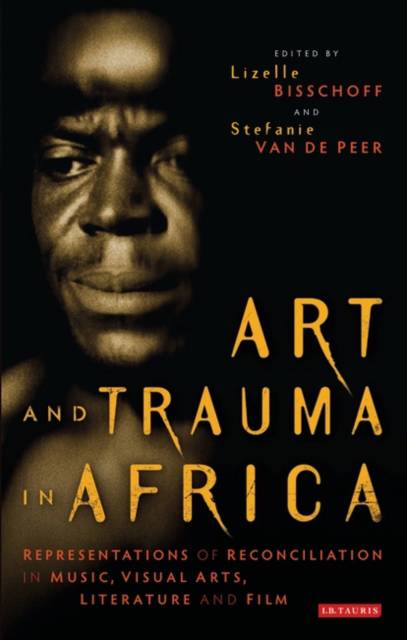
- Retrait gratuit dans votre magasin Club
- 7.000.000 titres dans notre catalogue
- Payer en toute sécurité
- Toujours un magasin près de chez vous
- Retrait gratuit dans votre magasin Club
- 7.000.0000 titres dans notre catalogue
- Payer en toute sécurité
- Toujours un magasin près de chez vous
Art and Trauma in Africa
Representations of Reconciliation in Music, Visual Arts, Literature and Film
Description
The traumas of conflict and war in postcolonial Africa have been widely documented, but less well known are their artistic representations. A number of recent films, novels and other art forms have sought to engage with and overcome postcolonial atrocities and to explore the attempts of reconciliation commissions towards peace, justice and forgiveness. This creativity reflects the memories and social identities of the artists, whilst offering a mirror to African and worldwide audiences coming to terms with a collective memory that is often traumatic in itself. The seeming paradox between creative representation and the reality of horrific events such as genocide presents challenges for the relationship between ethics, poetics and politics. In Art and Trauma in Africa, Lizelle Bisschoff and Stefanie Van de Peer bring together multiple ways of analyzing the ethical responsibility at the heart of an artist's decision to tackle such controversial and painful subjects. Also, to study trauma, conflict and reconciliation through art in a pan-African context offers new perspectives on a continent that is often misrepresented by the Western media.
The inexpressible nature of atrocities that are the crux of how Africa is generally regarded from the outside is challenged with new art forms that in and of themselves question perception and interpretation. African artists are renewing the field of trauma studies through representing the unrepresentable in order to incessantly invigorate insights and theories. Art and Trauma in Africa examines a diverse range of art forms, from hip hop in Nigeria and dance in Angola to Moroccan films and South African literature, taking an original pan-African approach. It is in doing so that this groundbreaking volume will inspire those interested in African history and politics as well as those with an interest in trauma, cultural and artistic studies.
Spécifications
Parties prenantes
- Editeur:
Contenu
- Nombre de pages :
- 360
- Langue:
- Anglais
- Collection :
- Tome:
- n° 21
Caractéristiques
- EAN:
- 9781848856929
- Date de parution :
- 30-10-12
- Format:
- Livre relié
- Format numérique:
- Genaaid
- Dimensions :
- 145 mm x 218 mm
- Poids :
- 566 g

Les avis
Nous publions uniquement les avis qui respectent les conditions requises. Consultez nos conditions pour les avis.





